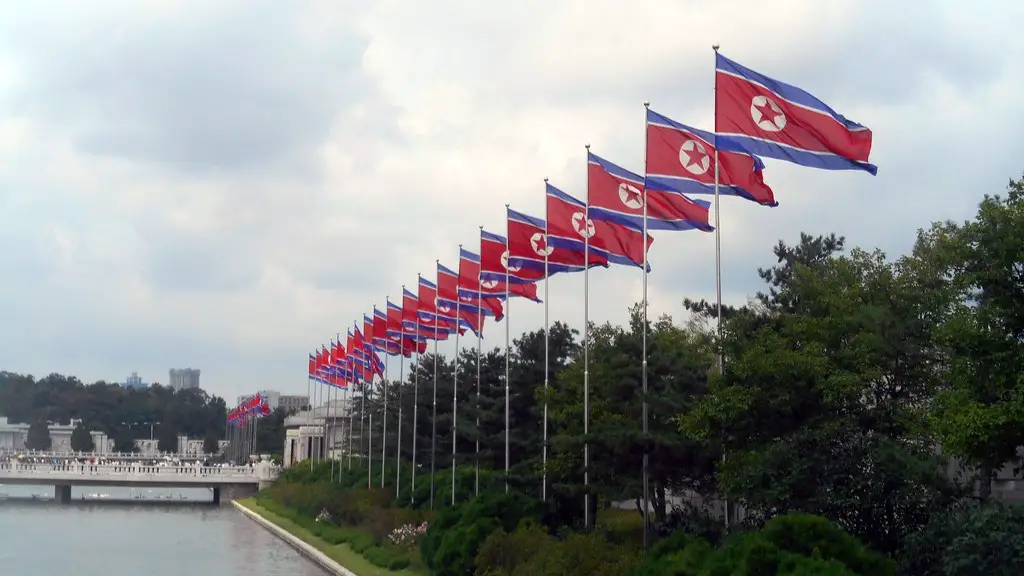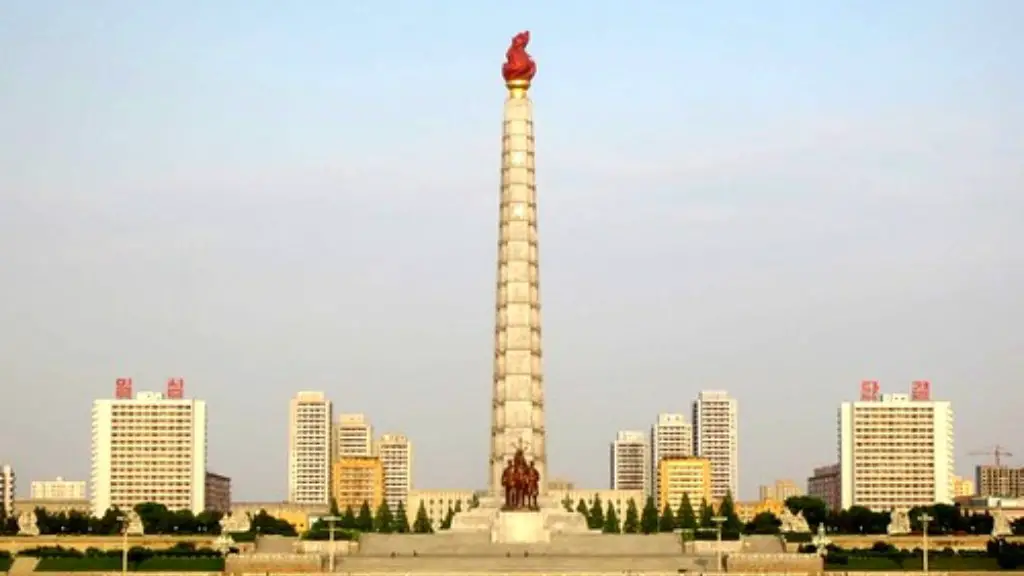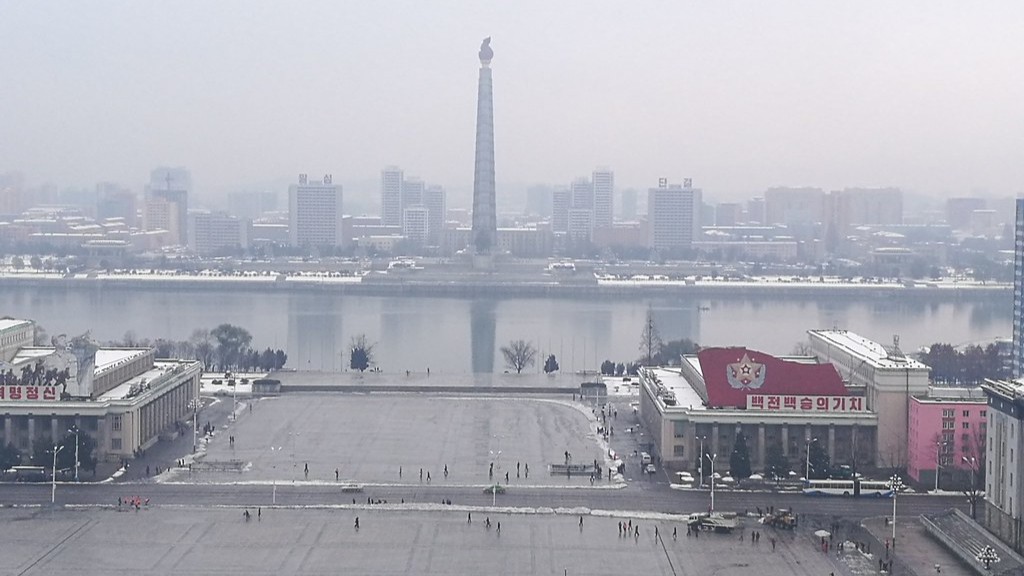In recent years, North Korea has become increasingly belligerent against its neighbors in the Asia-Pacific region, with its rhetoric and behavior being seen as deliberately provocative. In particular, North Korea has long threatened to launch military strikes against Japan, and has even conducted occasional missile launches into its territorial waters. This raises the question: why would North Korea attack Japan?
To answer this question, it is important to understand North Korea’s rationale. From North Korea’s perspective, Japan is an old enemy and has a long history of attempts to colonize parts of the Korean Peninsula. North Korea is a strongly nationalist state, and its leaders often cite the supposed “shame” inflicted on their country by Japan as justification for their policies. As such, North Korea views any action from Japan as potentially hostile and threatening, and considers all of Japan’s actions in the region, including economic and diplomatic ones, as part of a larger plot to “contain” and weaken North Korea.
Furthermore, North Korea is famously paranoid and sensitive to any perceived threats or slights against its leadership and its national interests. This has caused it to lash out against Japan on numerous occasions, particularly following perceived acts of aggression such as the presence of American troops on Japanese soil or Japanese trade sanctions against North Korea. In response, North Korea has often threatened to launch military strikes against Japan, even though such an attack would have devastating consequences for both countries.
Some analysts have also pointed to North Korea’s need to stave off internal decline and bolster its legitimacy as a major factor in its threats against Japan. Since the collapse of the Soviet Union in the 1990s, North Korea’s economy has sharply deteriorated, leaving the country in a desperate state and unable to pursue its aggressive foreign policy objectives. In this context, analysts believe that North Korea’s threats against Japan serve as a distraction from its domestic failures, allowing the regime to maintain its grip on power and present itself as a strong and defiant state.
Lastly, North Korea is also believed to be responding to Japan’s increasing engagement in the region, including its growing partnership with South Korea. The North Korean government views this as a threat, as it is seen as an attempt to encircle North Korea and increase its isolation. As such, North Korea’s moves against Japan can be seen as a way to discourage further Japanese involvement in the region and maintain North Korea’s leadership in the Korean peninsula.
Counter-Argument
While the above arguments explain why North Korea might feel the need to attack Japan, it is worth noting that there are also arguments that such an attack would be counter-productive for North Korea. For one, Japan is one of the most militarily powerful countries in the world, and any attack by North Korea would be met with a devastating response. Even if North Korea were able to launch a successful attack, it would cause a huge amount of destruction to both countries, and it is highly unlikely that North Korea would emerge in a better position than before. It is therefore possible that North Korea’s threats are simply a means of signaling its desire to be taken seriously by its regional rivals, but it is not actually willing to risk a full-scale conflict.
In addition, North Korea is heavily reliant on China for aid and trade, and any attack on Japan would likely lead to further condemnation and diplomatic isolation from China. Without China’s support, North Korea would be in an even weaker position than it already is. It is therefore likely that North Korea’s threats are ultimately aimed at furthering its own interests while avoiding a full-scale conflict that could potentially lead to its own downfall.
Economic Motives
Some analysts have also argued that one of the major motives for North Korea’s threats against Japan is economic. North Korea has long been isolated from the global economy, and the sanctions imposed by Japan and other countries have seriously hindered its access to foreign markets. By threatening Japan, North Korea can use the fear of an attack to pressure Japan into easing or lifting its sanctions, thus granting North Korea access to much-needed foreign capital.
Furthermore, North Korea is currently in the midst of a major economic transformation. The country is transitioning away from its traditional state-led economic model to a more market-oriented system, and is thus in desperate need of foreign investments and technology. By making threats against Japan, North Korea hopes to persuade it to provide economic assistance and investments to help the country in its transition.
Impact on the Region
Of course, any attack by North Korea against Japan would have far-reaching consequences for the region. A full-scale military conflict between the two countries would be devastating for both, and would lead to large-scale destruction, not to mention a high number of casualties. Furthermore, it would also likely destabilize the entire region, as other countries would necessarily become involved in the conflict.
In addition, a North Korean attack on Japan would also likely lead to an increase in regional tensions, as it would signal that North Korea is willing to use force in order to further its interests. This would likely lead to an increase in arms races and military build-ups in the region, as countries look to protect themselves from a North Korean attack. This in turn would have a major negative impact on regional stability, as well as on economic development.
US Response
The United States has long been committed to defending its allies in the Asia-Pacific region, and it is likely that any attack on Japan by North Korea would be met with a swift and aggressive response. The US has a long history of military operations in the region, and its forces are well-prepared and well-equipped to deal with any sort of attack from North Korea. In addition, the US also has strong diplomatic ties with Japan, and it is likely that the two countries would coordinate closely in the event of any attack by North Korea.
That being said, the US response to a North Korean attack on Japan would likely depend on the severity of the attack. If the attack did not cause severe harm or destruction, then it is likely that the US would respond with diplomacy and sanctions, rather than military action. However, if the attack caused significant damage and casualties, then it is likely that the US would respond with a military intervention of some sort.
Conclusion
In conclusion, North Korea’s threats against Japan can be seen as a way to signal the country’s strength and determination while attempting to stave off decline and isolation. While it is clear that any attack by North Korea on Japan would be tremendously destructive, it is likely that North Korea’s rhetoric will continue, as the regime looks to use fear and intimidation to further its interests. As such, it is important for the international community to remain vigilant and work together to ensure peace in the region.



